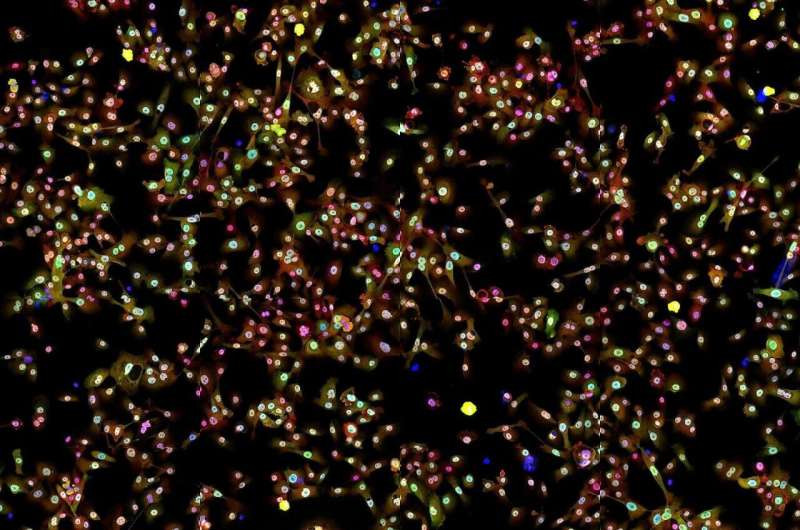New bacterial therapy approach to treat lung cancer

Lung cancer is the deadliest cancer in the United States and around the world. Many of the currently available therapies have been ineffective, leaving patients with very few options. A promising new strategy to treat cancer has been bacterial therapy, but while this treatment modality has quickly progressed from laboratory experiments to clinical trials in the last five years, the most effective treatment for certain types of cancers may be in combination with other drugs.
Columbia Engineering researchers report that they have developed a preclinical evaluation pipeline for characterization of bacterial therapies in lung cancer models. Their new study, published December 13, 2022, by Scientific Reports, combines bacterial therapies with other modalities of treatment to improve treatment efficacy without any additional toxicity. This new approach was able to rapidly characterize bacterial therapies and successfully integrate them with current targeted therapies for lung cancer.
"We envision a fast and selective expansion of our pipeline to improve treatment efficacy and safety for solid tumors," said first author Dhruba Deb, an associate research scientist who studies the effect of bacterial toxins on lung cancer in Professor Tal Danino's lab in Biomedical Engineering, "As someone who has lost loved ones to cancer, I would like to see this strategy move from the bench to bedside in the future."
The team used RNA sequencing to discover how cancer cells were responding to bacteria at the cellular and molecular levels. They built a hypothesis on which molecular pathways of cancer cells were helping the cells to be resistant to the bacteria therapy. To test their hypothesis, the researchers blocked these pathways with current cancer drugs and showed that combining the drugs with bacterial toxins is more effective in eliminating lung cancer cells. They validated the combination of bacteria therapy with an AKT-inhibitor as an example in mouse models of lung cancer.
"This new study describes an exciting drug development pipeline that has been previously unexplored in lung cancer—the use of toxins derived from bacteria," said Upal Basu Roy, executive director of research, LUNGevity Foundation, U.S.. "The preclinical data presented in the manuscript provides a strong rationale for continued research in this area, thereby opening up the possibility of new treatment options for patients diagnosed with this lethal disease."
Deb plans to expand his strategy to larger studies in preclinical models of difficult-to-treat lung cancers and collaborate with clinicians to make a push for the clinical translation.
More information: Dhruba Deb et al, Design of combination therapy for engineered bacterial therapeutics in non-small cell lung cancer, Scientific Reports (2022). DOI: 10.1038/s41598-022-26105-1





















